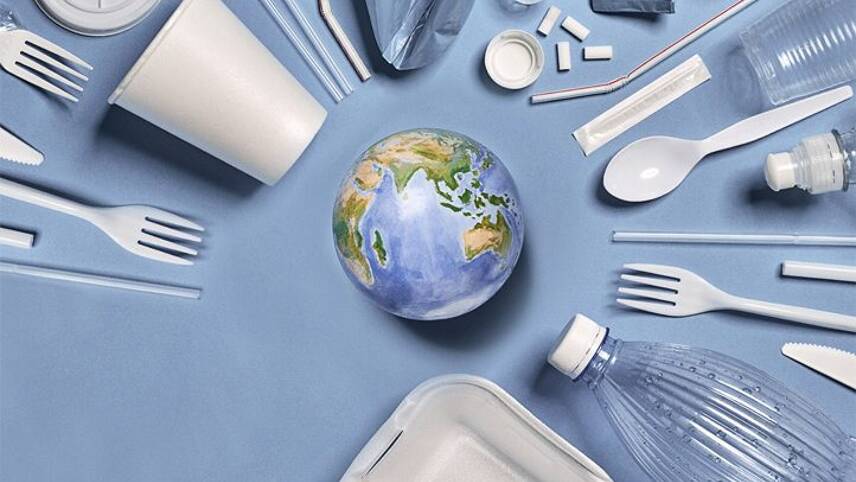Register for free and continue reading
Join our growing army of changemakers and get unlimited access to our premium content

Image: Accor
Accor’s announcement will see the hotel chain, which hosts more than 120 million guests across its global estate each year, remove all single-use plastic items from guestrooms, meeting areas, restaurants and all leisure activities within 24 months. At present, it distributes 200 million plastic items annually.
As a first step, Accor will remove individual plastic cups from guest facilities by the end of 2020. Miniature toiletries housed in single-use plastic will also be phased-out this year and replaced with alternatives that are either larger and refillable, or housed in alternative materials.
In the longer-term, alternatives for water bottles, laundry bags, cutlery, food-to-go containers and keycards will need to be developed, and plastic packets will need to be removed from items like slippers.
Accor has committed to consider life cycle assessments of all items and their alternatives before making the switch, amid concerns that some plastic alternatives carry higher lifecycle carbon emissions – particularly if they are single-use.
The hotelier has already begun work to phase-out plastic coffee stirrers, cotton buds and straws. On the latter, straws have now been removed from 94% of its estate, with the remaining 6% of hotels – all in China – due to be plastic-straw-free in March.
In order to meet its new 2022 commitment, Accor is collaborating with the United Nations Environment Programme (UNEP), the World Tourism Organisation and the Ellen MacArthur Foundation through the Global Tourism Plastics Initiative.
Launched today (23 January) to coincide with the World Economic Forum in Davos, the Initiative aims to unite actors across the tourism sector in a “systemic” approach to addressing plastic pollution by 2025. It welcomes business, NGO, governments, local authorities and trade and community associations, requiring signatories to take the following actions by 2025 at the latest:
- Eliminate problematic or unnecessary plastic packaging and items
- Take action to move from single-use to reuse models or reusable alternatives
- Engage the value chain to move towards 100% reusable, recyclable, or compostable packaging
- Take action to increase the amount of recycled content across all plastic packaging and items used
- Commit to collaborate and invest to increase the recycling and composting rates for plastics
- Report publicly and annually on progress made towards these targets
“Plastic pollution is one of the major environmental challenges of our time, and tourism has an important role to play in contributing to the solution,” UNEP director Ligia Noronha said.
“Through the Global Tourism Plastics Initiative, tourism companies and destinations are supported to innovate, eliminate, and circulate the way they use plastics, to advance circularity in our economies and reduce plastics pollution globally.”
Accor’s chairman and chief executive Sébastien Bazin said that Accor’s efforts to address the environmental footprint of its materials would “not stop” at the Initiative’s requirements.
“We are an innovative group by nature and we continuously search for more areas where we can reduce our impact on the global environment while helping our local communities in their efforts to create a healthier, more sustainable future,” Bazin said.
France-based Accor notably worked with other organisations across Paris to incentivise low-carbon transport and promote offsetting during COP21, where the Paris Agreement was ratified. Since then, it has been introducing onsite urban gardens to minimise food waste, promote innovative food production models and boost staff and guest awareness of the sustainability issues facing food systems.
Thirsting for plastic-free
In related news, AmBev, the Brazilian subsidiary of brewer AB InBev, has pledged to ensure that none of its plastic packaging activities result in plastic pollution by 2025.
The commitment will see the firm, which is Latin America’s biggest brewer, switch to packaging which is either returnable for reuse or made using 100% recycled material across its entire portfolio.
AmBev already houses 40% of its beer portfolio in returnable packaging and the rest of its beer packaging is not plastic-based. Achieving the new commitment for its range of soft drinks, including bottled water housed in plastic, will require more work.
To that end, the company has put out a call to collaborate with suppliers, recycling firms, academics and innovative startups. These partnerships will be used to redesign packaging, source recycled materials, improve recycling and reuse infrastructure and encourage consumer behaviour change. Ambev is notably already working with 10 startups on sustainability initiatives.
AB InBev has not yet set a global plastic commitment. However, several of its key subsidiaries, including Budweiser Brewing Group UK and Ireland and Corona, have introduced their own plastic commitments and innovative packaging formats in recent months.
Sarah George


Please login or Register to leave a comment.